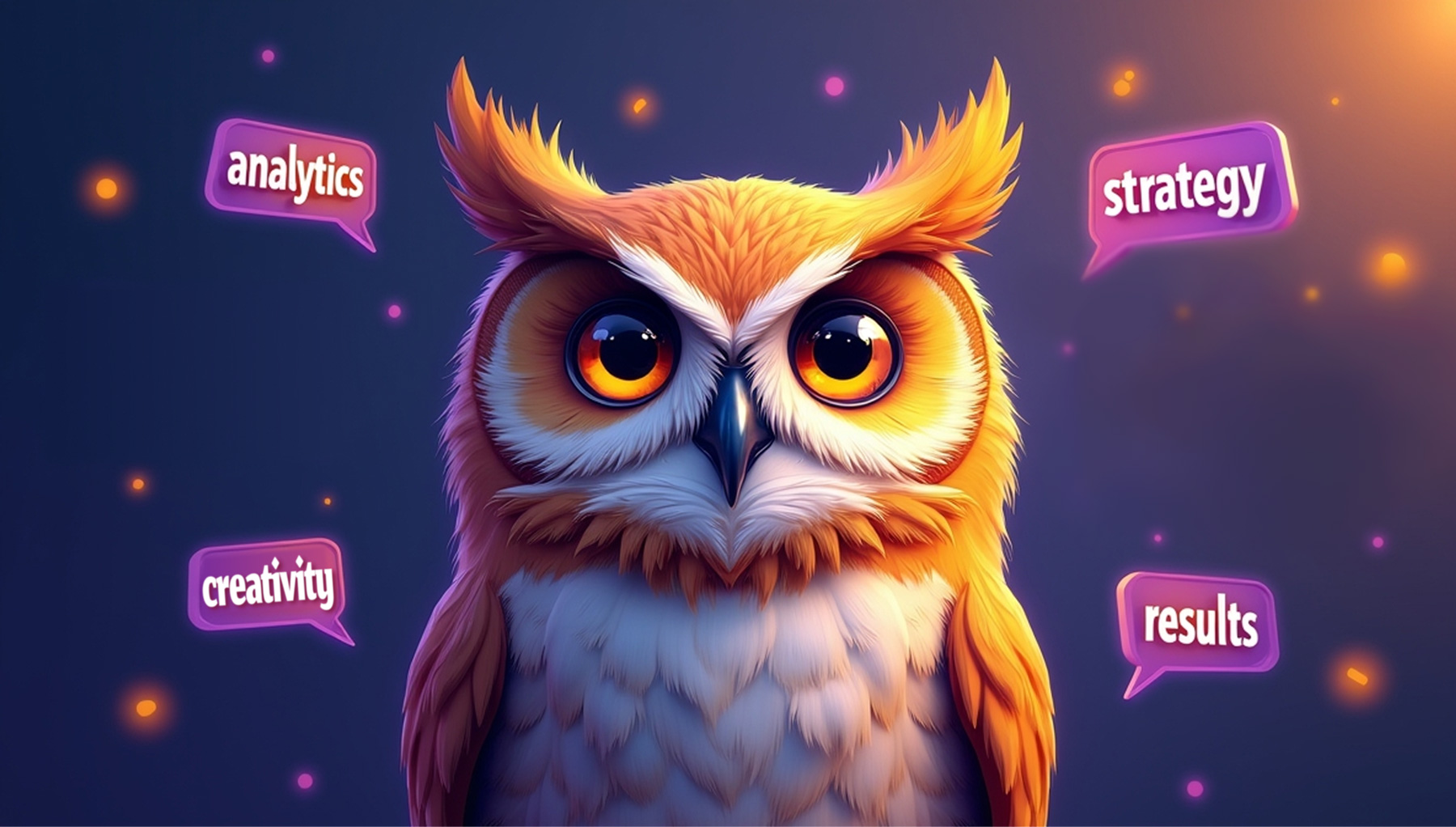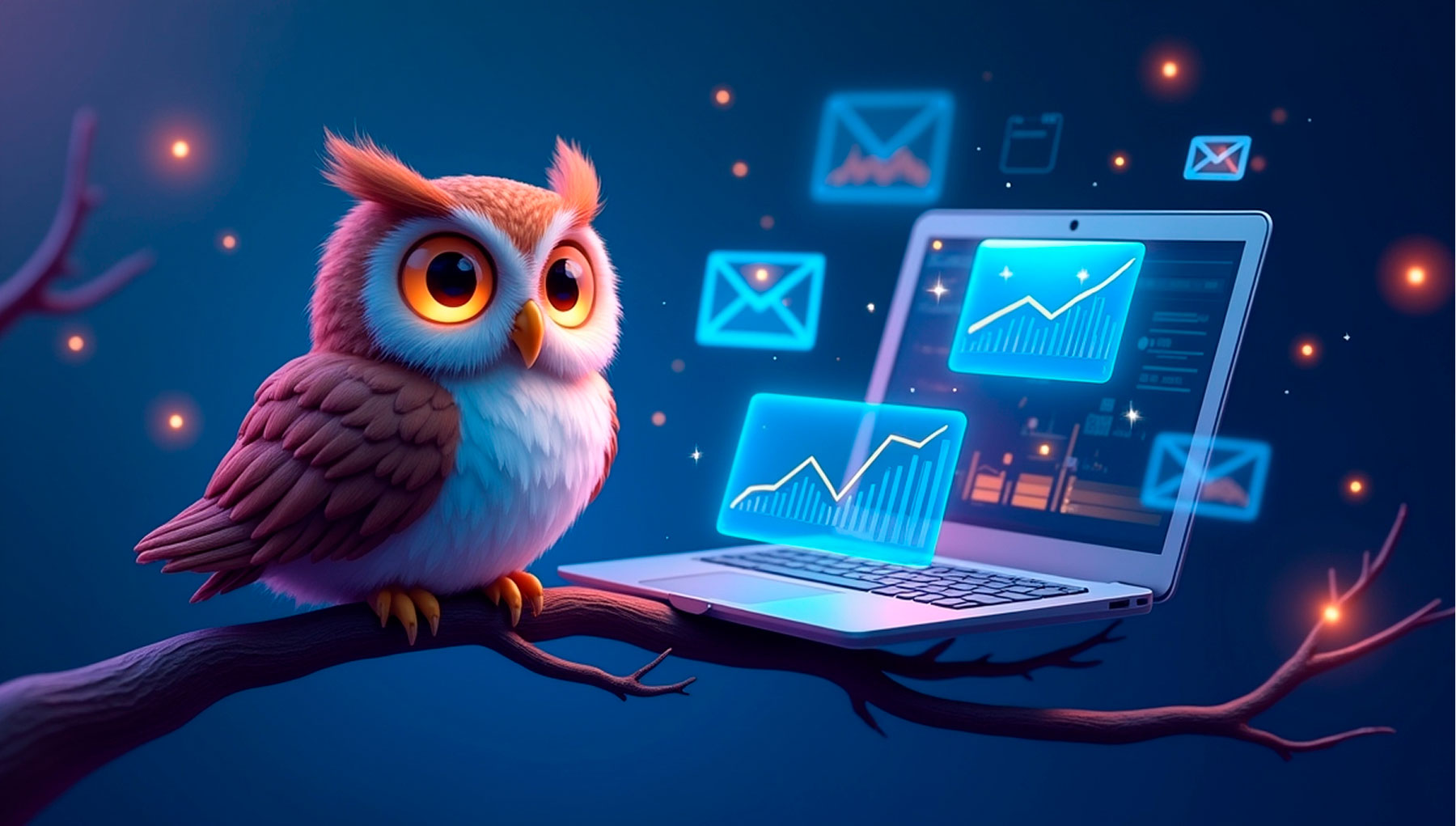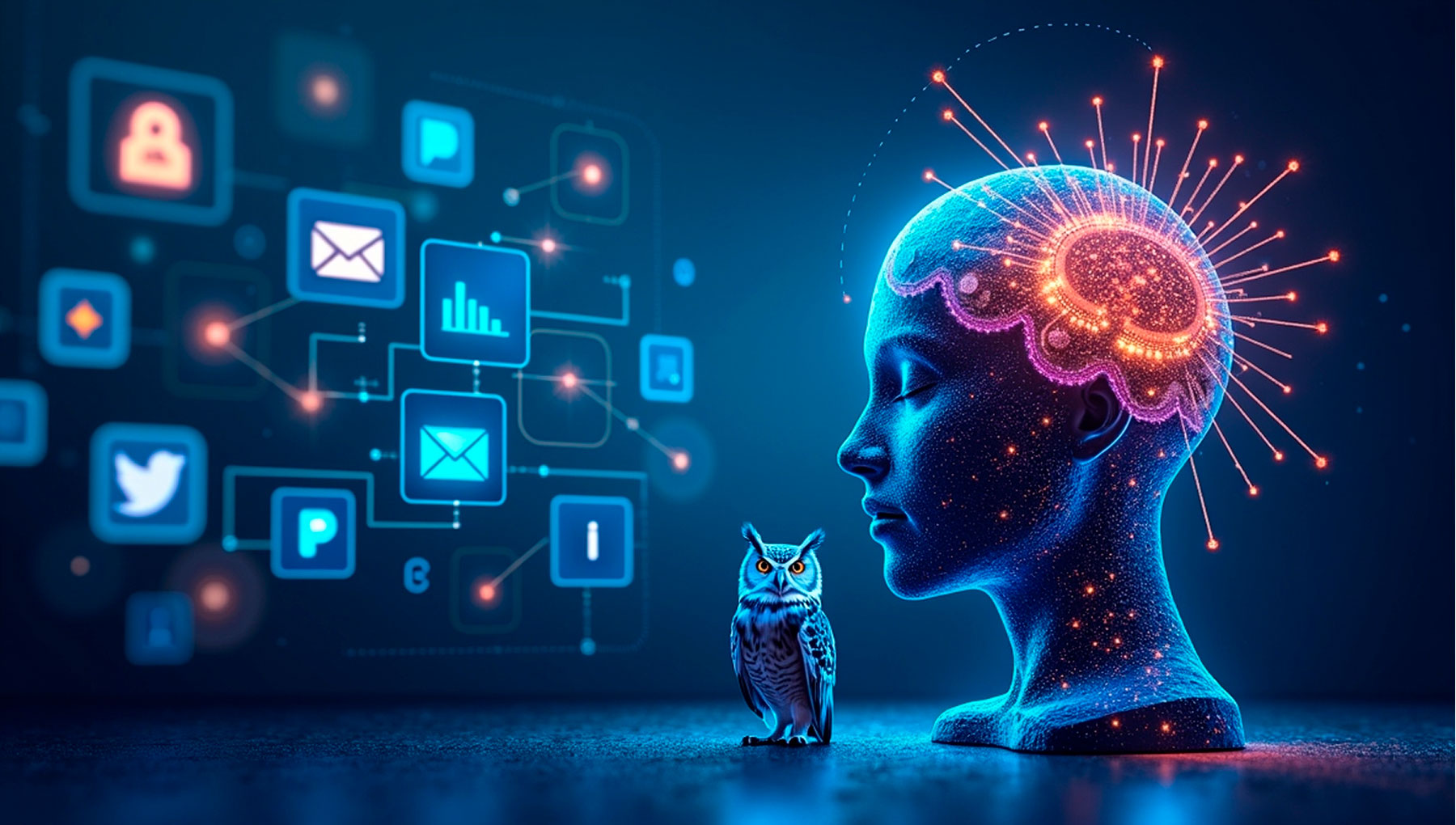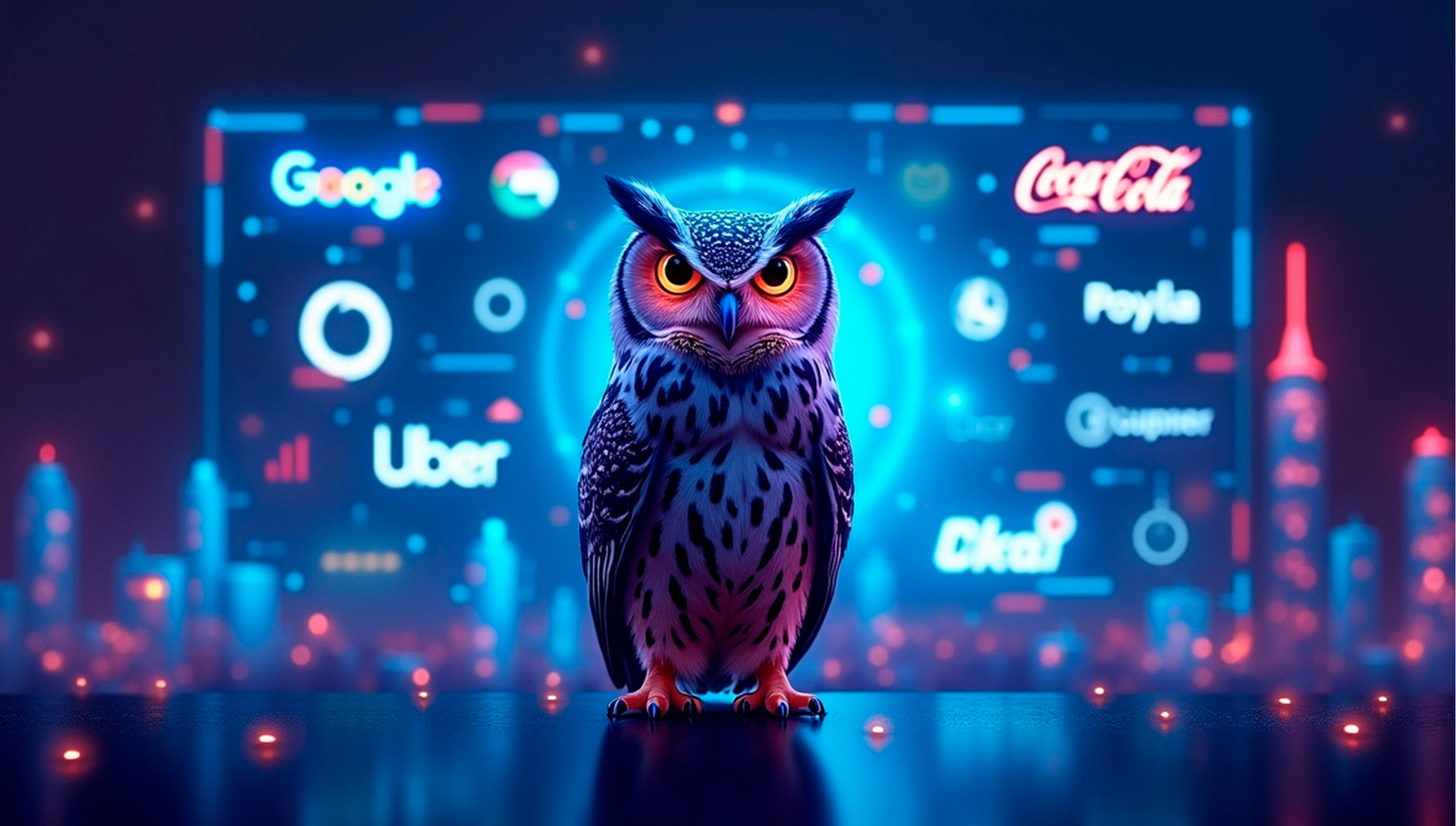What is AI marketing? This term refers to the use of artificial intelligence technologies to enhance marketing efforts by automating processes, optimizing advertising strategies, and delivering personalized customer experiences. AI enables businesses to analyze vast amounts of data, predict consumer behavior, and refine marketing campaigns for better results.
AI-driven marketing solutions integrate machine learning, predictive analytics, and natural language processing to optimize content, improve targeting, and automate customer interactions. These advancements help businesses maximize efficiency and achieve higher ROI through improved decision-making.
- The role of AI in modern marketing
- Key AI technologies used in marketing
- Why AI is the future of marketing
- Key applications of AI in marketing
- Benefits of artificial intelligence in marketing
- Risks and consequences of AI in marketing
- Real-world examples of AI in marketing
- How to get started with AI in marketing
- Future trends in AI-powered marketing
- Conclusion
The role of AI in modern marketing
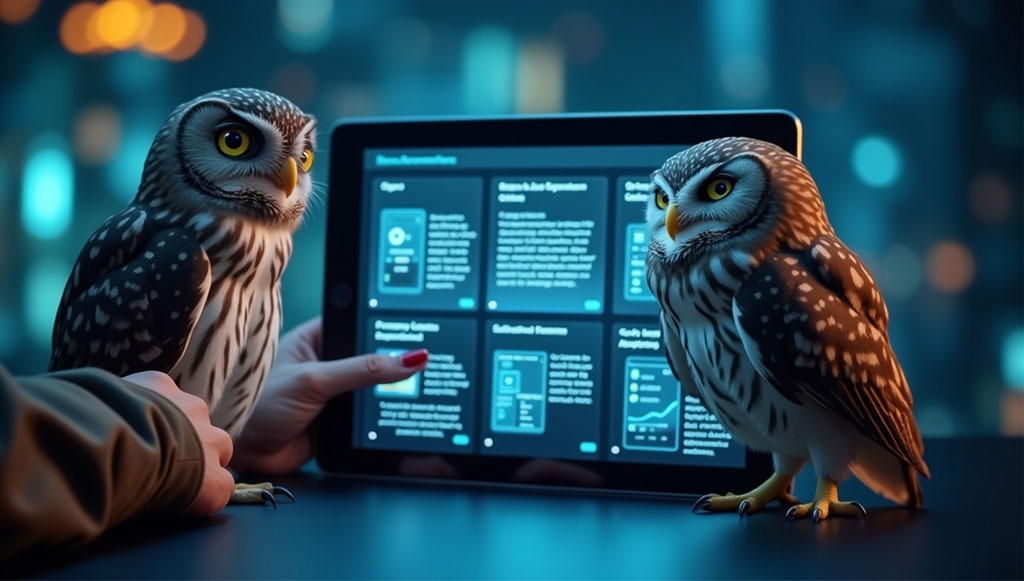
The integration of AI for digital marketing allows businesses to leverage intelligent automation, providing better audience segmentation, targeted advertising, and enhanced customer engagement. AI tools process data in real-time, enabling marketers to make informed decisions quickly.
By using AI in marketing, companies can streamline various aspects of digital marketing, including:
- Personalization – AI tailors content and product recommendations based on user behavior.
- Marketing automation – AI automates repetitive tasks, such as email campaigns and social media posting.
- Predictive analytics – AI anticipates customer trends, helping businesses adjust marketing strategies proactively.
- Chatbots and virtual assistants – AI-powered bots provide instant customer support, improving engagement.
These AI capabilities are widely adopted in industries ranging from e-commerce to finance, where businesses utilize AI-driven tools to enhance their marketing efforts.
Key AI technologies used in marketing
Several advanced AI technologies drive digital marketing and AI strategies, transforming the way businesses interact with customers:
- Machine learning (ML): AI models analyze customer preferences and behavior to optimize advertising and content recommendations.
- Natural language processing (NLP): AI enables chatbots, sentiment analysis, and automated content creation.
- Predictive analytics: AI forecasts consumer trends, allowing businesses to adjust strategies based on data-driven insights.
- Computer vision: AI-powered tools recognize and interpret visual data, improving ad targeting and user experience.
By leveraging these technologies, businesses can enhance their AI marketing technology strategies, making campaigns more effective and resource-efficient.
Why AI is the future of marketing
The rise of marketing with AI is reshaping digital marketing strategies, enabling businesses to achieve:
- Higher efficiency and scalability – AI automates marketing processes, reducing manual effort.
- Personalized user experiences – AI enhances customer interactions by analyzing behavior and preferences.
- Data-driven decision-making – AI tools provide real-time insights, improving strategy optimization.
- Better targeting and advertising ROI – AI ensures ads reach the right audience at the right time.
Companies like Netflix, Amazon, and Spotify have successfully implemented AI-driven marketing, setting new standards in personalization and engagement. Businesses that embrace AI will stay ahead of the competition, while those that ignore it risk falling behind.
Key applications of AI in marketing
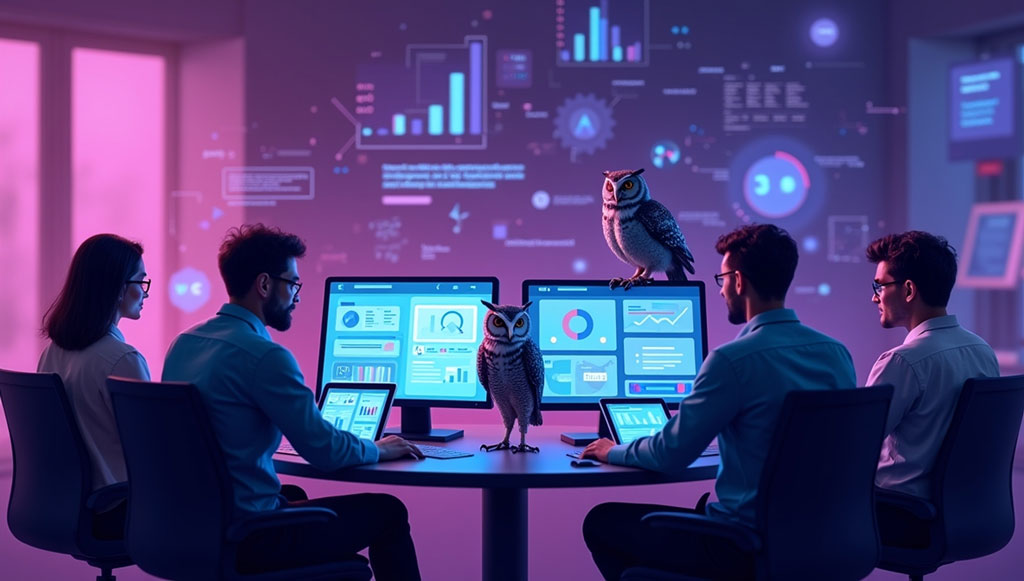
Artificial intelligence has significantly transformed the way businesses approach marketing. By leveraging AI-driven technologies, companies can automate processes, enhance targeting accuracy, and improve overall marketing performance. Below are the key applications of AI for digital marketing that are reshaping the industry.
Personalization
Personalization is one of the most powerful ways AI enhances marketing strategies. Businesses can use AI to tailor advertisements, email campaigns, and product recommendations based on individual user behavior and preferences.
By using AI in marketing, companies can:
- Analyze past interactions and purchase history to suggest relevant products.
- Dynamically adjust website content and user experiences in real-time.
- Deliver targeted email campaigns with personalized subject lines and AI-powered recommendations.
Example: Amazon employs AI-powered marketing recommendation engines to predict user preferences and boost sales, resulting in higher conversion rates.
Content Creation
AI is playing a vital role in automating content generation, helping marketers produce high-quality, engaging content faster and more efficiently.
AI marketing technology assists with:
- Automated blog writing – Tools like Jasper AI and Copy.ai generate long-form articles based on user inputs.
- Social media content – AI tools schedule posts, write captions, and analyze engagement rates.
- Product descriptions – AI tools generate SEO-optimized descriptions tailored to user intent.
Example: The Washington Post uses AI-driven content creation tools to generate news articles, ensuring rapid content delivery without compromising quality.
Programmatic advertising
AI is transforming digital advertising by automating ad placements and optimizing bidding strategies in real time.
AI-powered marketing solutions help businesses:
- Improve audience segmentation – AI analyzes user behavior to refine targeting.
- Optimize ad spend – AI algorithms adjust bidding strategies based on ad performance.
- Deliver dynamic ad creatives – AI generates personalized ads tailored to each user.
Example: Google Ads and Meta Ads Manager utilize AI to enhance ad targeting, maximizing return on investment (ROI).
SEO and content optimization
AI-driven SEO tools help marketers improve search rankings by analyzing search intent, suggesting optimized keywords, and generating high-performing content strategies.
AI marketing technology enhances:
- Keyword research – AI identifies trending search terms and suggests relevant keywords.
- Content performance tracking – AI analyzes engagement metrics to refine SEO strategies.
- Voice search optimization – AI optimizes content for AI-powered voice assistants like Alexa and Google Assistant.
Example: Surfer SEO and SEMrush use AI to provide keyword insights and improve website ranking potential.
Benefits of artificial intelligence in marketing

The adoption of AI in marketing provides businesses with numerous advantages, from increased efficiency to enhanced customer engagement. By leveraging AI-powered technologies, companies can improve decision-making, optimize marketing campaigns, and achieve better ROI. Below are the key benefits of digital marketing with AI and how it transforms the industry.
1. Improved efficiency and scalability
AI automates repetitive and time-consuming tasks, allowing marketers to focus on strategy and creative aspects. By integrating AI, businesses can handle large-scale marketing operations with minimal human intervention.
Key efficiency benefits include:
- Automated email marketing – AI optimizes send times, subject lines, and content based on user behavior.
- Social media management – AI tools schedule and analyze content performance across multiple platforms.
- Customer segmentation – AI categorizes audiences based on behavior, improving targeting strategies.
Example: HubSpot and Marketo use AI-driven automation to enhance lead generation and email campaign performance.
2. Enhanced customer experiences through personalization
Personalization is one of the biggest advantages of AI-powered marketing, as it enables businesses to deliver tailored content, recommendations, and interactions.
AI-driven personalization includes:
- Dynamic website content – AI adjusts homepage displays based on user preferences.
- Personalized advertising – AI ensures users see ads relevant to their browsing history and interests.
- Customized email marketing – AI-generated personalized subject lines and recommendations increase open rates.
Example: Spotify’s AI-powered playlists curate music recommendations based on user listening habits, improving customer retention.
3. Data-driven decision-making and predictive analytics
AI helps businesses make informed decisions by analyzing vast amounts of data in real time. With AI-driven insights, marketers can predict trends, customer behavior, and campaign performance.
Key advantages of predictive analytics include:
- Sales forecasting – AI anticipates revenue trends based on past performance.
- Customer churn prediction – AI identifies users likely to disengage and suggests retention strategies.
- Real-time campaign optimization – AI adjusts ads and targeting dynamically for better engagement.
Example: Amazon uses AI-driven predictive analytics to recommend products and personalize customer experiences.
4. Cost savings through automation
AI-driven automation significantly reduces marketing costs by minimizing the need for manual labor. Businesses can cut expenses while maintaining high efficiency and effectiveness.
Cost-saving AI applications include:
- AI-powered chatbots – Reduce customer service costs by automating responses.
- Automated ad bidding – AI optimizes bidding strategies, preventing overspending on digital ads.
- Smart content creation – AI tools generate articles, social media posts, and video content without human effort.
Example: Google Ads’ Smart Bidding feature optimizes ad spend by adjusting bids based on conversion probabilities.
5. Real-time adaptability to market trends
AI enables marketers to react instantly to changes in consumer behavior and industry trends. Real-time data processing helps businesses adjust marketing strategies and maintain relevance.
Key AI-driven adaptability benefits include:
- Trend monitoring – AI scans social media and search trends to identify emerging topics.
- Competitor analysis – AI tools analyze competitor marketing strategies and suggest improvements.
- Ad campaign optimization – AI continuously refines targeting and messaging based on engagement metrics.
Example: Coca-Cola uses AI to monitor social media sentiment, allowing real-time adjustments to marketing campaigns.
Risks and consequences of AI in marketing
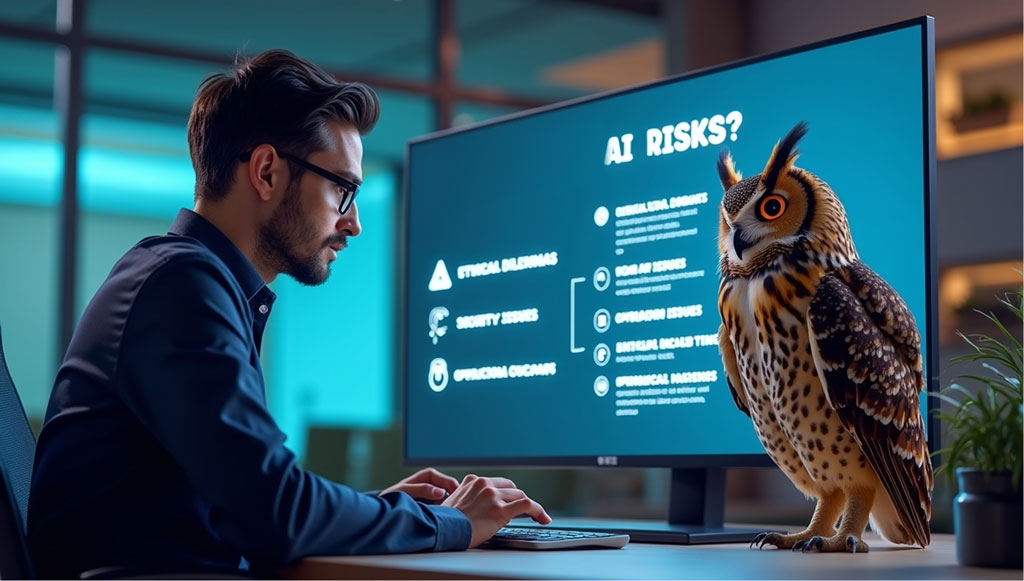
Despite the numerous benefits of AI, businesses must also consider the potential risks and challenges associated with its implementation. While AI can enhance efficiency and personalization, it can also pose ethical, operational, and security concerns. Below are the primary risks of the use of AI in marketing and how companies can mitigate them.
1. Data privacy and security concerns
One of the biggest challenges of AI-powered marketing is handling vast amounts of data while maintaining user privacy. AI relies on collecting, storing, and analyzing customer information, which increases the risk of data breaches and unauthorized access.
Key concerns include:
- Compliance with data protection laws – Businesses must adhere to regulations such as GDPR (General Data Protection Regulation) and CCPA (California Consumer Privacy Act) to avoid legal issues.
- User trust and transparency – Customers may feel uneasy about their data being used without clear consent.
- Cybersecurity threats – AI systems can be vulnerable to hacking, leading to leaks of sensitive consumer information.
Example: In 2019, Facebook faced backlash due to mishandling user data, reinforcing the importance of transparent data policies.
How to mitigate this risk: Implement strong encryption, ensure compliance with data protection laws, and provide users with clear opt-in/opt-out options for data collection.
2. Risk of over-reliance on automation
AI is a powerful tool, but businesses must avoid becoming too dependent on it. Over-reliance on AI in marketing can lead to problems when human oversight is removed from critical decision-making processes.
Potential issues include:
- Lack of emotional intelligence – AI cannot fully understand human emotions and context, which may lead to misinterpreted customer interactions.
- Loss of brand authenticity – AI-generated content can sometimes feel robotic, reducing genuine customer engagement.
- Over-automation of customer service – Chatbots may fail to handle complex customer queries, leading to frustration.
Example: Bank of America’s chatbot, Erica, helps customers with banking needs, but users still prefer human support for complex financial issues.
How to mitigate this risk: Use AI as a supplement to human creativity and oversight rather than a full replacement for human marketers.
3. Potential for bias in AI algorithms
AI systems are only as good as the data they are trained on. If an AI model is trained on biased datasets, it may reinforce discriminatory practices in marketing campaigns.
Common AI biases include:
- Gender bias – AI may display job-related ads differently to men and women due to biased training data.
- Racial bias – AI-powered tools may unintentionally exclude certain demographics in advertising campaigns.
- Preference bias – AI-driven recommendation engines may favor well-established brands over smaller competitors.
Example: In 2018, Amazon had to scrap its AI-driven hiring tool because it showed bias against female applicants.
How to mitigate this risk: Regularly audit AI models, use diverse datasets, and ensure fairness in AI decision-making processes.
4. The need for human oversight and creativity
While AI excels at data processing and automation, it lacks human intuition, creativity, and emotional intelligence. Over-automation can result in generic marketing strategies that fail to connect with consumers on a deeper level.
Challenges include:
- AI-generated content lacks emotional appeal – AI can create technically correct content, but human creativity is needed to craft compelling storytelling.
- Lack of adaptability in crises – AI cannot respond with empathy in sensitive situations, requiring human intervention.
- Standardized messaging – AI may produce repetitive messaging, reducing originality in marketing campaigns.
Example: Nike’s creative campaigns rely on human-driven storytelling that resonates with audiences emotionally—something AI cannot fully replicate.
How to mitigate this risk: Balance AI automation with human creativity to maintain authentic brand messaging.
5. Ethical implications of AI-driven marketing tactics
AI enables hyper-personalized marketing, but it can also lead to ethical concerns about consumer manipulation, privacy invasion, and misinformation.
Key ethical concerns include:
- AI-generated deepfake advertisements – Misleading content created using AI can spread misinformation.
- Excessive consumer tracking – AI may collect data without users realizing it, leading to ethical dilemmas.
- Algorithmic decision-making – AI may unfairly prioritize specific users, creating bias in marketing campaigns.
Example: In 2021, Facebook’s AI algorithms came under scrutiny for amplifying harmful content, raising concerns about AI’s role in shaping consumer behavior.
How to mitigate this risk: Establish ethical AI policies, prioritize transparency, and ensure responsible AI usage in marketing strategies.
Final thoughts on AI risks in marketing
While AI-powered marketing provides incredible opportunities, businesses must be aware of its risks and implement safeguards to protect consumers and maintain ethical standards. Companies that integrate AI responsibly will benefit from its automation and insights while avoiding potential pitfalls.
Real-world examples of AI in marketing
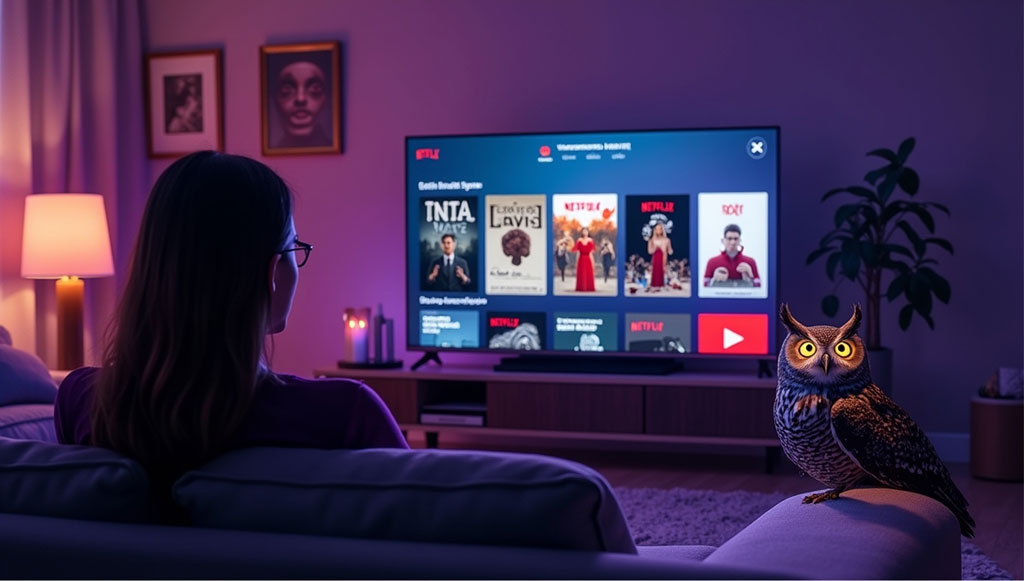
Many of the world’s leading companies have successfully integrated AI-powered marketing into their strategies, demonstrating how artificial intelligence enhances personalization, automation, and decision-making. Below are real-world examples of businesses leveraging AI to optimize their marketing efforts.
1. Netflix – AI-powered personalization
Netflix is a prime example of AI for digital marketing in action. The company uses AI-driven recommendation algorithms to analyze user behavior, viewing history, and preferences.
AI marketing technology in Netflix includes:
- Personalized content recommendations – AI suggests movies and TV shows based on user preferences.
- Dynamic thumbnails – AI tests different thumbnail images to determine which one increases engagement.
- Predictive analytics – AI forecasts viewing trends, allowing Netflix to create content that aligns with audience demand.
Impact: AI has helped Netflix retain subscribers by keeping users engaged with tailored content, increasing watch time and reducing churn.
2. Amazon – AI-driven product recommendations
Amazon uses AI-powered marketing to enhance the online shopping experience and boost sales.
AI applications in Amazon include:
- Personalized product recommendations – AI analyzes past purchases and browsing history to suggest relevant items.
- Dynamic pricing optimization – AI adjusts product prices based on demand, competitor pricing, and user behavior.
- Voice search AI – Alexa, Amazon’s AI-powered assistant, helps users search for and purchase products using voice commands.
Impact: AI-driven recommendations account for over 35% of Amazon’s total sales, demonstrating the power of AI-driven personalization.
3. Spotify – AI-enhanced music curation
Spotify leverages AI in marketing to create a personalized music streaming experience for its users.
AI-driven features in Spotify include:
- Discover Weekly and Daily Mix – AI analyzes user listening habits to generate curated playlists.
- Predictive analytics for music trends – AI identifies emerging trends and suggests new songs.
- AI-powered advertising – Spotify uses AI to serve targeted audio and display ads to free-tier users.
Impact: AI-driven personalization has significantly improved user retention and engagement on Spotify.
4. Coca-Cola – AI for creative marketing campaigns
Coca-Cola employs AI marketing technology to enhance creativity and engagement in its campaigns.
AI-driven initiatives in Coca-Cola include:
- AI-generated marketing copy – AI assists in writing ad copy and social media content.
- Computer vision for analyzing customer reactions – AI tracks sentiment analysis through social media.
- Predictive analytics for beverage trends – AI helps Coca-Cola develop new flavors based on consumer data.
Impact: AI has helped Coca-Cola create data-driven marketing strategies, improving brand engagement and customer experience.
5. Sephora – AI chatbots for personalized customer support
Sephora is a leader in marketing with AI, using chatbots and AI-powered virtual assistants to enhance the online shopping experience.
AI-driven innovations in Sephora include:
- Virtual Artist AI chatbot – Uses augmented reality (AR) to allow users to try on makeup virtually.
- AI-powered product recommendations – AI suggests beauty products based on user preferences.
- Conversational AI for customer service – Chatbots assist customers with product queries, reducing wait times.
Impact: AI has helped Sephora improve customer service efficiency and increase online sales.
6. Google Ads – AI-powered advertising optimization
Google Ads is one of the most advanced platforms leveraging AI-powered marketing to optimize digital advertising strategies.
Key AI applications in Google Ads include:
- Smart Bidding AI – Automatically adjusts bids based on likelihood of conversion.
- Responsive Search Ads – AI tests multiple ad variations to identify the best-performing ones.
- Predictive audience targeting – AI identifies potential customers based on online behavior.
Impact: AI has improved ad performance and increased ROI for businesses using Google Ads.
Final thoughts on AI in marketing
These real-world examples showcase how companies are effectively leveraging AI to improve personalization, automation, and targeting. As AI technology continues to evolve, more businesses will adopt AI-driven solutions to stay competitive.
How to get started with AI in marketing
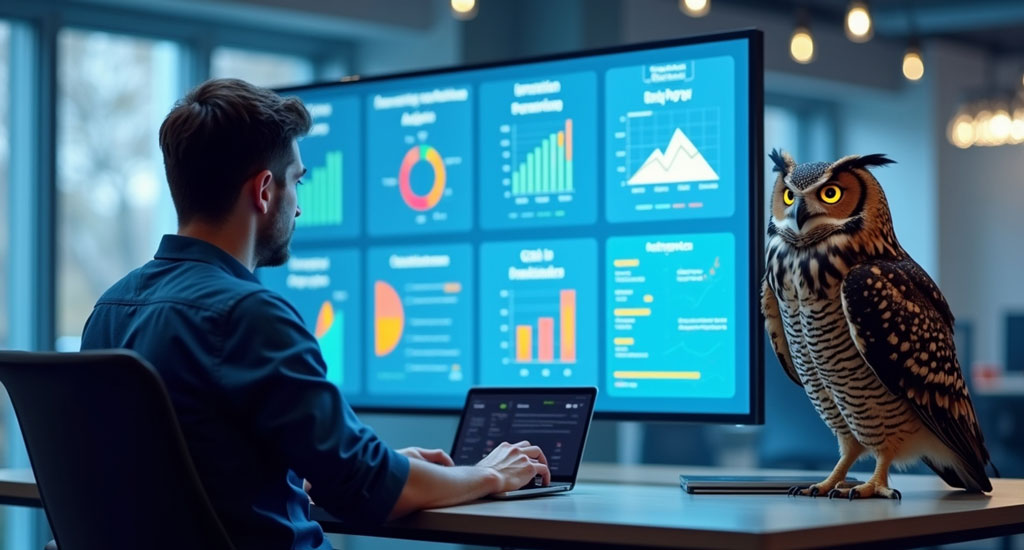
Implementing AI-powered marketing requires a strategic approach to ensure businesses maximize its benefits while avoiding potential pitfalls. Companies looking to integrate AI into their marketing efforts should follow these essential steps.
1. Assess your marketing goals and identify areas where AI can add value
Before implementing AI, businesses must evaluate their current marketing strategies and identify areas where AI can improve efficiency and performance.
Key considerations:
- Which marketing processes are time-consuming or inefficient?
- What data insights can AI provide to enhance decision-making?
- How can AI improve personalization, automation, or advertising performance?
Example: A company looking to improve advertising performance may use AI-driven audience segmentation and predictive analytics to optimize ad targeting.
Action step: Conduct an internal marketing audit to determine where AI can deliver the highest impact.
2. Choose the right AI tools and platforms
Businesses should select AI-powered applications that align with their marketing objectives. The right tools can automate processes, enhance customer engagement, and improve content strategies.
Key AI marketing tools include:
- Chatbots & Customer Support: Drift, Intercom, IBM Watson Assistant.
- Analytics & Data Insights: Google Analytics 4, HubSpot, Adobe Sensei.
- SEO & Content Optimization: MarketMuse, Clearscope, Surfer SEO.
- AI-Powered Advertising: Google Ads’ Smart Bidding, Meta Ads Manager.
Example: A company focused on lead generation might invest in AI-driven CRM software like HubSpot to streamline customer interactions and automate follow-ups.
Action step: Research and invest in AI platforms tailored to your specific marketing needs.
3. Invest in training for your team to understand and use AI effectively
To fully leverage AI in marketing, businesses need a skilled team capable of using AI-powered tools efficiently. Training employees ensures smooth AI integration and maximizes return on investment.
Key training areas:
- Understanding AI functionalities and applications.
- Using AI-driven analytics tools for data-driven decision-making.
- Implementing AI automation in marketing campaigns.
Example: A company adopting AI-based email marketing automation might train employees on platforms like Mailchimp’s AI features to optimize campaigns.
Action step: Provide AI education and hands-on training to employees responsible for marketing strategy execution.
4. Start small with pilot projects and scale up based on results
Rather than overhauling an entire marketing strategy, businesses should begin with small-scale AI projects to test performance and adjust strategies accordingly.
Best practices for AI pilot projects:
- Select one area for AI implementation (e.g., chatbots, content generation, programmatic ads).
- Monitor AI-driven results and measure key performance indicators (KPIs).
- Gradually expand AI integration based on performance insights.
Example: A business might implement an AI-powered chatbot for customer support before expanding AI to content creation and advertising.
Action step: Launch AI initiatives on a small scale, analyze performance, and scale up based on data-driven insights.
5. Monitor AI performance and continuously optimize strategies
AI is not a one-time implementation—it requires continuous monitoring and refinement to ensure optimal performance. Businesses should regularly assess AI-driven marketing strategies to improve efficiency and effectiveness.
Key areas to monitor:
- Customer engagement metrics – Are AI-driven recommendations increasing conversions?
- AI-generated content performance – Are AI-created blog posts ranking well in search engines?
- Ad targeting accuracy – Are AI-driven ads improving ROI compared to manual campaigns?
Example: An e-commerce brand using AI-driven product recommendations should analyze whether AI-suggested products lead to increased sales.
Action step: Regularly review AI-generated insights and adjust strategies to maximize impact.
Final thoughts on getting started with AI in marketing
Integrating AI into marketing requires careful planning, investment in the right tools, and ongoing optimization. Companies that strategically implement AI will benefit from improved efficiency, personalization, and data-driven decision-making.
Future trends in AI-powered marketing

As artificial intelligence continues to evolve, its role in marketing is becoming more sophisticated. Businesses that stay ahead of emerging AI trends will have a competitive advantage by delivering more personalized, data-driven, and automated marketing strategies. Below are the key future trends shaping AI marketing technology and its applications.
1. Generative AI for hyper-personalized content
Generative AI is revolutionizing content creation by enabling brands to produce highly personalized marketing materials at scale. AI-powered tools can generate blog posts, social media captions, email campaigns, and even video content tailored to individual preferences.
Key applications include:
- AI-generated blog content optimized for SEO.
- AI-powered video and audio creation for digital marketing.
- Dynamic ad copy that adapts based on user behavior.
Example: Jasper AI and Copy.ai help businesses generate marketing content quickly, reducing the time required for content creation.
Impact: AI will enhance creative marketing efforts, allowing businesses to create highly relevant and engaging content efficiently.
2. Voice search optimization and AI-powered voice assistants
As voice search usage grows, businesses must optimize content for AI-driven voice assistants like Amazon Alexa, Google Assistant, and Apple Siri. Consumers are increasingly using voice commands to search for products, services, and recommendations.
Key considerations for marketers:
- Focus on conversational keywords to match voice search queries.
- Structure content in a Q&A format for featured snippets.
- Optimize local SEO for voice-based search queries (e.g., “best coffee shop near me”).
Example: Domino’s Pizza allows customers to place orders using voice assistants, streamlining the ordering process.
Impact: Businesses must adapt SEO and content strategies to align with the rising trend of AI-powered voice search.
3. AI-driven video marketing and virtual influencers
AI is transforming video marketing by enabling businesses to create high-quality, engaging video content at scale. Additionally, AI-generated virtual influencers are gaining traction in digital marketing campaigns.
Key applications include:
- AI-generated videos for product demonstrations and explainer content.
- Virtual influencers promoting brands on social media.
- AI-driven video editing tools for automating content production.
Example: Lil Miquela, a virtual AI influencer, has collaborated with brands like Prada and Samsung, gaining millions of followers.
Impact: AI-powered video marketing will become a major component of digital marketing strategies, enhancing brand storytelling and engagement.
4. Increased focus on ethical AI and transparency
As AI becomes more integrated into marketing, concerns about data privacy, algorithmic bias, and transparency are growing. Businesses must ensure ethical AI practices to maintain consumer trust.
Best practices for ethical AI marketing:
- Provide clear AI disclosure when using chatbots or automated responses.
- Ensure AI models are free from bias and discrimination.
- Implement transparent AI algorithms for personalization and advertising.
Example: Google’s AI principles focus on ethical AI development, ensuring fairness, accountability, and privacy protection.
Impact: Brands that prioritize ethical AI and transparency will gain customer trust and long-term loyalty.
5. AI integration with augmented reality (AR) and virtual reality (VR)
AI-powered AR and VR marketing will redefine how brands engage with customers, providing immersive and interactive experiences.
Key applications include:
- AI-driven virtual try-on solutions for fashion and beauty brands.
- Augmented reality product demonstrations for e-commerce.
- AI-powered virtual store assistants for personalized shopping.
Example: Sephora’s Virtual Artist AI tool allows customers to test makeup products using augmented reality.
Impact: AI-enhanced AR/VR experiences will create highly engaging and interactive marketing campaigns, improving customer experiences.
Final thoughts on the future of AI in marketing
The future of AI marketing technology is evolving rapidly, with businesses integrating AI for personalization, automation, and immersive experiences. Companies that adapt to these emerging trends will enhance customer engagement and drive higher marketing efficiency.
Conclusion
AI is revolutionizing the marketing landscape by enabling businesses to automate processes, optimize advertising campaigns, and deliver personalized customer experiences. Companies that integrate AI-driven solutions can enhance decision-making, improve efficiency, and create more engaging interactions with their audience.
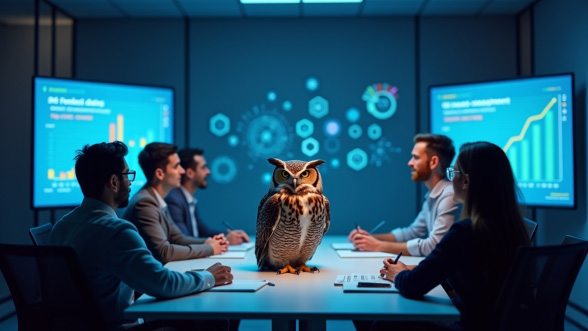
By leveraging AI-powered marketing, businesses can:
- Improve efficiency and scalability – Automate repetitive marketing tasks such as email campaigns, social media scheduling, and customer segmentation.
- Enhance personalization – Use AI algorithms to analyze consumer behavior and deliver targeted ads, personalized product recommendations, and customized content.
- Optimize ad spend and targeting – AI enables businesses to improve advertising effectiveness through smart bidding and real-time audience segmentation.
- Leverage predictive analytics – AI-powered data analysis helps businesses anticipate trends and customer behavior, allowing them to adjust marketing strategies accordingly.
- Enhance customer engagement – AI-powered chatbots and virtual assistants provide real-time customer support, improving user satisfaction and response times.

However, as AI becomes an essential part of digital marketing, businesses must also be mindful of potential risks, including data privacy concerns, over-reliance on automation, and ethical AI considerations. Brands that prioritize transparency, ethical AI usage, and human oversight will build stronger trust with consumers.
Companies like Netflix, Amazon, Spotify, Coca-Cola, and Sephora have demonstrated the power of AI-driven marketing strategies, showing how artificial intelligence enhances personalization, automation, and customer experience. As AI technology continues to evolve, businesses that embrace these innovations will stay ahead of the competition.
To stay competitive in the ever-evolving digital marketing landscape, businesses must begin incorporating AI into their marketing strategies. Whether it’s AI-driven content creation, predictive analytics, or automation, the key to success is finding the right balance between AI-powered efficiency and human creativity.
Effective AI tools
AI post generator for Instagram
Transform your Instagram with our AI manager: create eye-catching images, captions and schedule posts at the optimal time for maximum impact!
AI for B2B
Tailored to consultants, agencies, startups (software/hardware), and businesses seeking growth with streamlined outreach.
AI LinkedIn post generator
Automatically generate and schedule content tailored to your audience’s preferences. A seamless, time-saving solution that requires no extra input or effort.
AI for lead generation
Autonomous AI Lead Generating Manager. Create and send personalised message chains to effectively engage with your contacts!
